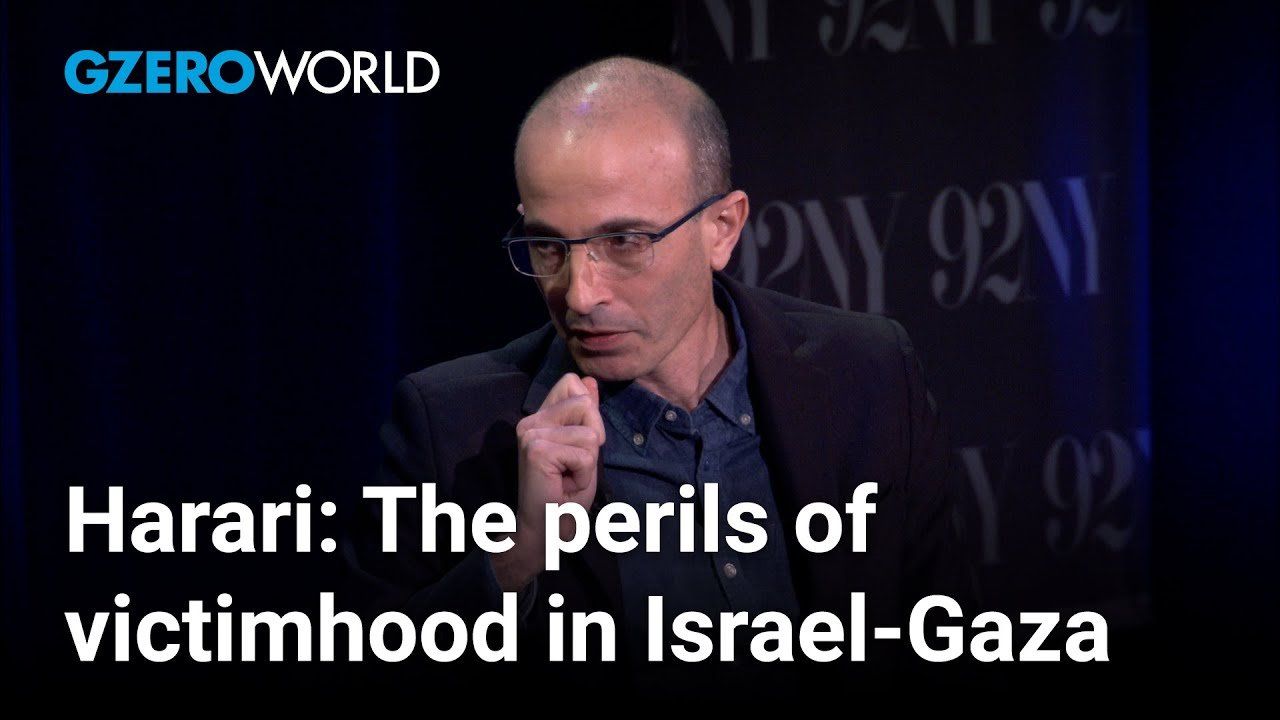GZERO World Clips
Yuval Noah Harari on the perils of viewing Israel-Palestine through the 'victimhood' context

Harari on the perils of viewing Israel-Palestine through the 'victimhood' context | GZERO World

In a wide-ranging conversation with Ian Bremmer, filmed live at the historic 92nd Street Y in NYC, bestselling author Yuval Noah Harari discusses the profound role narratives play in conflict resolution and identity politics. It’s through this framing that Harari and Ian address the latest conflict between Israel and Gaza. Victimhood, Harari posits, often comes with an element of truth, but it carries the danger of absolving individuals or nations of responsibility. "If you think about yourself primarily as a victim, it relieves you of all responsibility," he explains.
Bremmer also presses Harari on the notion of narratives, and particularly, how to distinguish between patriotism and nationalism. Harari describes patriotism as the love for a unique group and a willingness to do more for them, akin to how we treat our families. Nationalism, however, turns perilous when it crosses into supremacism — when love for one's group becomes an excuse to despise and discriminate against others. Harari asserts, "It becomes dangerous when we start saying this group of people, they are not just unique. They are superior."
Harari defends the possibility of simultaneously supporting the rights and dignities of both Israelis and Palestinians. Holding dual narratives of both people's aspirations to live dignified lives in their homelands is not only possible but necessary, according to Harari. "Just because you are in favor of the rights of Palestinians doesn't mean you have to be also in favor of destroying Israel completely," he states.
Ian Bremmer sits down with former US Ambassador to NATO Ivo Daalder to unpack a historic shift in the transatlantic alliance: Europe is preparing to defend itself without its American safety net.
Think you know what's going on around the world? Here's your chance to prove it.
Argentina, Armenia, Belarus, Egypt, Indonesia, Jordan, Pakistan, Paraguay, Vietnam – to name only a few.
A poster featuring Andrew Mountbatten-Windsor, formerly known as Prince Andrew, is installed on a sign leading to the parking area of the Sandringham Estate in Wolferton, as pressure builds on him to give evidence after the U.S. Justice Department released more records tied to the late financier and convicted sex offender Jeffrey Epstein, in Norfolk, Britain, February 5, 2026.
British police arrested former Prince Andrew Mountbatten-Windsor today over allegations that in 2010, when he was a UK trade envoy, he shared confidential government documents with convicted sex offender Jeffrey Epstein.